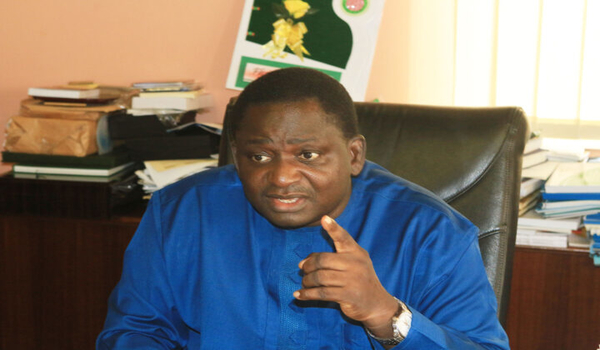Fuel Subsidy: NLC suspends planned antionwide protest; Suspension will result in more borrowings _ Adesina
The Nigeria Labour Congress (NLC) has suspended its planned nationwide protest.
The decision comes hours after the union had vowed to continue with its planned nationwide rally on Thursday and after the Federal Government announced the suspension of the planned removal of the fuel subsidy.
The leadership of the Congress says, for now, it plans to continue to engage with the government on the issues of ensuring local refining of petroleum, creation of sustainable jobs and affordable price of petrol for Nigerian workers and people.
“Following the reversal and the approach by government, the National Executive Council of the Nigeria Labour Congress met this afternoon virtually, to consider this position of the government,” NLC President, Ayuba Wabba said at a press conference.
“The NEC, after vigorous debate, took a decision to suspend the planned nation-wide protest scheduled for the 27th of January 2022 and the national protest also scheduled for 2nd of February 2022.”
According to the labour leader, the fuel subsidy removal will only inflict more suffering on Nigerians.
The Federal Government had earlier announced the suspension of the planned removal of fuel subsidy.
The Minister of Finance, Budget and National Planning, Zainab Ahmed, had on Monday said the government had suspended the plan to remove fuel subsidy.
She explained that the government would make provisions for fuel subsidy beyond its initial June deadline in the 2022 budget.
But the Presidency has said on Wednesday Nigeria may have to continue to borrow due to the suspension of the removal of fuel subsidy.
The President’s Special Adviser on Media and Publicity, Femi Adesina, stated this during an interview on a private television’s breakfast programme.
“Head or tail, Nigeria will have to pay a price,” he said. “It’s either we pay the price for the removal in consonance and in conjunction with the understanding of the people, but if that will not come, the other cost is that borrowings may continue, and things may be difficult fiscally with both the states and the Federal Government.
“You know how much could have been saved if the subsidy was removed and how it could have been diverted to other areas and spheres of national life. But if you do not go that way now – and I agree that it may not be auspicious to go that way, then we have to pay a price.”
Last year, the Senate approved some loan requests by the government. This included the approval of $6.1 billion, as well as the $16,230,077,718 and €1,020,000,000 loan requests in July and November respectively.
According to Adesina, oil prices have been fluctuating globally for years as a result of one reason or the other, particularly due to COVID since 2019.
He stated that the price witnessed a decline as low as $30 per barrel, but later rose above $80 per barrel.
But many, including the President of the Nigerian Bar Association (NBA), Olumide Akpata, believe the suspension of the fuel subsidy removal has to do with the coming elections in 2023.
Mr Femi Adesina says the suspension of the fuel subsidy removal has nothing to do with the coming elections.
“It is a valid thing [to do],” Adesina said of the government’s suspension of the removal, adding, “but is this done because of elections next year? No.”
“It is done because as the minister (of finance) stated, the timing is not auspicious, inflation is still high. In the past eight months, we saw inflation reducing but the last month, it went up again; further consultations need to happen with all the stakeholders.”
He also debunked claims that the present administration’s proposal to extend the removal of fuel subsidy by 18 months was intended to booby-trap the next president.
“That was not the intention, the intention was also stated – the timing is not right, it will exacerbate the hardship of the people and the President genuinely cares,” Adesina said.
“Politics is a part of our lives, but elections will just be one event in the life of the country. When elections come, they go, the country continues. This fuel subsidy, whether it stays or goes, is going to have a serious impact on the economy.”




